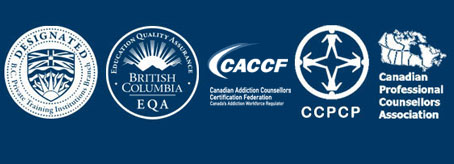Psychology of Grief

POG-400 Psychology of Grief
This course in a nutshell:
Discussion topics: Major theories of loss from a psychological perspective; recognizing symptoms of grief; assessing complicating factors leading to unresolved grief; types of complicated grief reactions, and appropriate counselling techniques for each; special types of losses.
Skills: You will learn assessment procedures, normalizing techniques, treatment planning and interventions related to a wide variety of grief related situations. Techniques for working with adults, children, adolescents, couples, and families. You will develop the therapeutic skills necessary to recognize and treat complicated grief reactions, and to support clients through the various stages of the normal grief process.
COURSE CONTENT:
This course will cover theories and specialized skills and techniques appropriate for use in the field of grief counseling. The various phases or tasks relating to the grief process will be identified. Students will learn to recognize symptoms of normal grief and complicated grief; and will practice appropriate intervention skills to help clients resolve the phases of grief.
The information presented in this course will be explored from a psychological perspective as supported by current researchers and major theorists.
Cultural aspects, social and personality development of the client are recognized as being important components when working in the field of grief counselling.
Students’ personal feelings about dealing with grief issues will be examined. You will be encouraged to explore your own history of loss, in order to minimize the effect that unresolved grief may have on your ability to facilitate the grieving process for your clients.
PORTFOLIO OF JOB SKILLS
What you will learn:
Your level of proficiency and competence with the skills introduced in this course will deepen as you proceed through the program. Upon graduation from the Diploma or Certificate program, you may include the following skills as part of your Professional Portfolio:
- The ability to recognize various types of losses that result in grief reactions and to conduct a variety of assessment procedures when working with individuals, children, adolescents, couples, families, and groups to screen for grief responses.
- The ability to use interview and counseling techniques to facilitate clients’ through various phases of grief such as:
- Accepting the reality of the loss
- Working through the painful emotions relating to grief
- Adjusting to the environment without the deceased
- Saying goodbye to the deceased and moving on to other significant relationships.
- The ability to differentiate between symptoms of normal grief and symptoms of complicated grief; and to develop treatment plans accordingly.
- The ability to assess and recognize categories of disorders found in the DSMIV-TR which would indicate a complicated grief reaction.
- The ability to apply a variety of counselling approaches such as reflective listening and empathy; normalizing; facilitate unfinished business using empty chair technique and role playing; journaling; art therapy; individual, group, couples, and family counseling, and other appropriate counseling techniques to assess for and support resolution of the client’s grief response.
- The ability to apply a variety of counseling approaches to assess for and address a range of intrapersonal issues such as low self-esteem, depression, anxiety, anger, and guilt which are common reactions to grief.
- The ability to set collaborative goals specific to grief counselling.
- The ability to assess for level of suicide risk; and other types of self-harm or harm to others, and to respond with appropriate intervention.
- The ability to recognize the importance of community influence, traditional values and cultural sensitivity relating to special populations and culturally diverse groups.
- The ability to make appropriate referrals to community resources and other service providers to address clients’ needs which fall outside the scope of practice of an entry-level counselor.
- The ability to practice within ethical guidelines and limits of confidentiality; and to maintain appropriate boundaries in the therapeutic relationship when working with end of life issues.
- The ability to consult with supervisors and colleagues to manage counter transference issues and signs of burnout.
(NOTE: The skill set you will learn in this course comprises areas of core competence required for the practice of professional counselling.)






